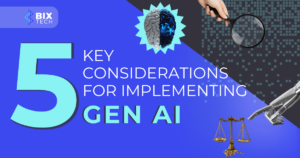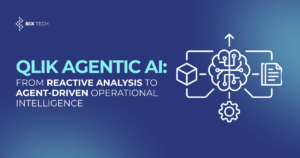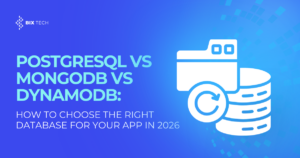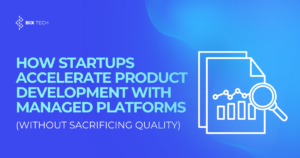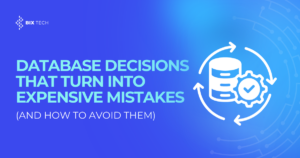DevOps Demystified: How Modern DevOps Practices Accelerate Business Success

Sales Development Representative and excited about connecting people
Introduction
In today’s fast-paced digital world, the ability to deliver software rapidly, reliably, and at scale is no longer a luxury—it's a necessity. Enter DevOps: a transformative approach that bridges the gap between development and operations, boosts collaboration, and powers continuous delivery. But what exactly is DevOps, and how can it propel your business forward? In this guide, we’ll demystify DevOps, explore its key benefits, core practices, and real-world applications, and share actionable insights for implementing DevOps in your organization.
What Is DevOps?
DevOps is more than just a buzzword—it's a culture and set of practices that bring together software development (Dev) and IT operations (Ops). The goal? To shorten the software development lifecycle, improve product quality, and foster a culture of collaboration and shared responsibility.
At its core, DevOps is about breaking down silos. Instead of developers writing code and tossing it over the wall to operations, both teams work together from planning to deployment and beyond. This unified approach ensures faster releases, fewer errors, and better alignment with business goals.
Why Businesses Are Embracing DevOps
1. Faster Time to Market
One of the primary drivers behind DevOps adoption is speed. By automating repetitive tasks, streamlining workflows, and promoting cross-functional teamwork, businesses can deliver features and fixes to customers faster than ever before. This ability to innovate quickly often translates into a significant competitive advantage.
2. Improved Reliability and Quality
DevOps practices such as continuous integration (CI) and continuous delivery (CD) catch bugs early and automate testing. As a result, teams can deploy code frequently with confidence, knowing that each change is thoroughly validated. This leads to more stable releases and higher customer satisfaction.
3. Enhanced Collaboration and Communication
DevOps breaks down barriers between teams. Developers, operations, QA, and even security collaborate throughout the software lifecycle. This shared ownership reduces friction, accelerates problem-solving, and aligns everyone toward common business objectives.
4. Cost Efficiency
Automation reduces manual effort and human error, while streamlined processes minimize waste. Many organizations find that embracing DevOps leads to lower operational costs and frees up talent to focus on innovation rather than firefighting.
Core Practices of DevOps
To achieve these benefits, DevOps relies on several key practices:
Continuous Integration (CI)
CI is the practice of automatically building and testing code every time a change is made. This helps catch bugs early, ensures code quality, and keeps the main branch deployable at all times.
Continuous Delivery/Deployment (CD)
CD automates the process of releasing code to production (continuous deployment) or to a staging environment (continuous delivery). This reduces manual steps, shortens release cycles, and ensures new features reach customers faster.
Infrastructure as Code (IaC)
IaC treats infrastructure setup as code, allowing teams to automate the provisioning and management of servers, networks, and other resources. Tools like Terraform and Ansible are popular choices for implementing IaC.
Automated Testing
Automated tests validate that new code works as expected and doesn’t break existing functionality. This builds confidence and accelerates the delivery process.
Monitoring and Feedback Loops
Real-time monitoring tools track application health, performance, and user experience. Feedback loops ensure that teams can quickly detect and resolve issues, leading to continuous improvement.
Real-World DevOps in Action
Companies across industries are leveraging DevOps to drive innovation and efficiency. For example, Netflix uses DevOps practices to deploy code thousands of times per day, ensuring a seamless user experience for millions of viewers worldwide. Similarly, financial institutions rely on DevOps automation to maintain compliance and security while rolling out new digital services.
If you’re interested in how DevOps can specifically optimize business productivity and decision-making, check out our post on data analysis and productivity.
Getting Started with DevOps: Practical Steps
Ready to embark on your DevOps journey? Here’s how to get started:
1. Foster a Culture of Collaboration
DevOps begins with people, not tools. Encourage open communication, shared goals, and a willingness to experiment and learn from failures.
2. Automate Where It Matters
Identify repetitive manual tasks in your development and operations processes. Start automating builds, tests, and deployments to free up your team for higher-value work.
3. Invest in the Right Tools
Popular DevOps tools include Jenkins for CI/CD, Docker for containerization, Kubernetes for orchestration, and monitoring solutions like Prometheus and Grafana. Choose tools that fit your team’s needs and scale with your business.
4. Measure and Iterate
Set clear metrics—such as deployment frequency, mean time to recovery, and change failure rate—to track your progress. Use these insights to continuously refine your DevOps processes.
For a deeper dive into building scalable, efficient software, check out our guide on mastering real-time data analysis with streaming architectures.
Overcoming Common DevOps Challenges
While the benefits are compelling, implementing DevOps can come with challenges:
- Cultural Resistance: Change is hard. Some team members may be reluctant to adopt new workflows. Address concerns openly and highlight the benefits.
- Tool Overload: With so many DevOps tools available, it can be tempting to use too many at once. Focus on a small, integrated toolset to start.
- Security Integration: Don’t treat security as an afterthought. Modern DevOps incorporates security practices from the start—a concept known as DevSecOps.
The Future of DevOps
DevOps continues to evolve, integrating with other trends such as artificial intelligence (AI), machine learning, and cloud-native development. As businesses seek to innovate at scale, DevOps will remain a cornerstone of agile, resilient, and customer-focused organizations.
Conclusion
DevOps is not just a methodology—it's a mindset shift that empowers businesses to deliver better software, faster and more reliably. By fostering collaboration, embracing automation, and committing to continuous improvement, organizations can unlock new levels of agility and innovation.
Whether you’re just starting out or looking to optimize your existing processes, adopting DevOps practices can transform your business’s ability to compete and succeed in the digital age.
Ready to take your team’s productivity to the next level? Start your DevOps journey today!
Interested in more cutting-edge tech insights? Explore our blog for practical guides and real-world examples on topics like predictive analytics strategies and more.



